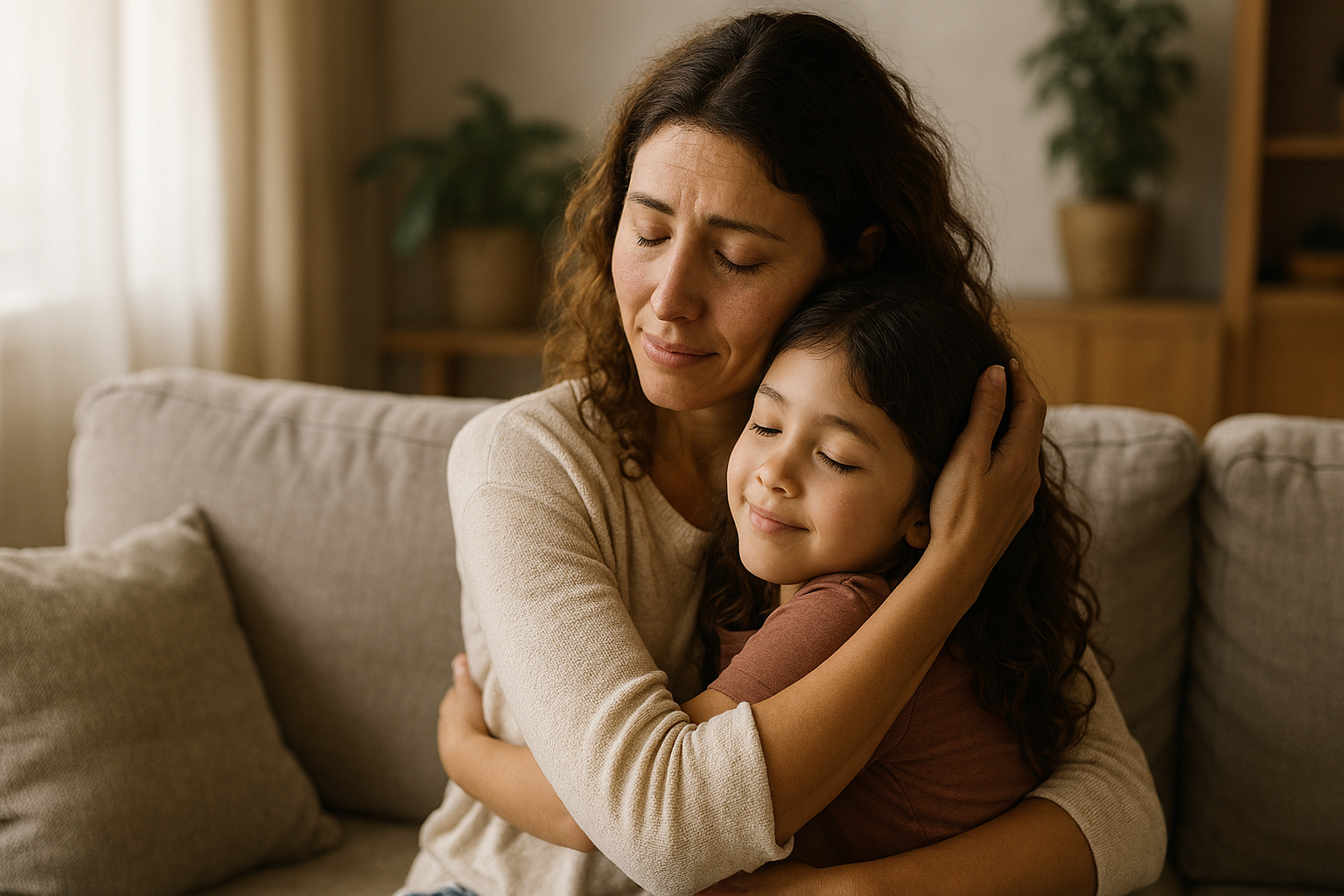What is parenting burnout and why does it happen?
Parenting burnout is more than just feeling tired — it’s the deep emotional, mental, and physical exhaustion that can build when the demands of caring for children feel relentless and unbalanced. It often comes with feelings of guilt, irritability, or detachment, leaving parents wondering if they’re failing. In truth, burnout is not a sign of weakness or lack of love; it’s a signal from your mind and body that something needs to shift. Recognizing burnout as a natural human response to sustained stress is the first step toward transforming it into a catalyst for healing, connection, and renewed joy in your parenting journey.
How can I recognize the signs of parenting burnout early?
Burnout rarely arrives overnight — it creeps in through subtle changes. You might notice you’re snapping more quickly, feeling emotionally numb, or struggling to find joy in moments that once lit you up. Physical symptoms like headaches, disrupted sleep, or constant fatigue can also be clues. Early recognition matters because it allows you to intervene before exhaustion becomes overwhelming. By tuning into these signals with compassion rather than judgment, you create space to respond with care, setting the stage for both you and your child to thrive.
Why is it important to validate my feelings before trying to “fix” burnout?
When burnout strikes, the instinct is often to push through or “fix” it immediately. But skipping over your feelings can deepen the disconnection. Validation — telling yourself, It’s okay to feel this way — is a powerful act of self-respect. It acknowledges your humanity and models emotional honesty for your child. By pausing to honor your emotions, you lay the groundwork for sustainable change, showing that self-compassion is not indulgence but a vital parenting skill that strengthens the whole family.
Can burnout actually strengthen my relationship with my child?
Yes — when approached with openness, burnout can become a turning point. It invites you to slow down, reassess priorities, and reimagine daily life in ways that nurture both you and your child. Children are remarkably perceptive; when they see you taking steps to care for yourself, they learn that love includes healthy boundaries and mutual respect. This shared journey toward balance can deepen trust, foster empathy, and create a family culture where everyone’s needs matter.
What practical steps can I take today to ease parenting burnout?
Small, intentional actions can have a big impact. Start by identifying one daily task you can simplify, delegate, or let go entirely. Build in micro‑moments of rest — even two minutes of deep breathing while your child plays nearby can reset your nervous system. Reach out to a trusted friend or fellow parent for a short, honest conversation. These small shifts, repeated consistently, create a ripple effect that restores energy and optimism, proving that recovery doesn’t require perfection, just steady, compassionate choices.
How can I reframe burnout as an opportunity instead of a setback?
Reframing begins with language. Instead of seeing burnout as a failure, view it as feedback — a signal that your current pace or patterns aren’t sustainable. This perspective transforms burnout from an obstacle into an invitation: to slow down, to listen, to realign your life with your values. By embracing this mindset, you turn a draining season into a growth chapter, one where you and your child can discover new rhythms that honor both your well‑being and your bond.
What role does self‑care really play in overcoming parenting burnout?
Self‑care is not a luxury; it’s the foundation of effective, joyful parenting. True self‑care goes beyond bubble baths or occasional treats — it’s about consistently meeting your physical, emotional, and mental needs. That might mean protecting your sleep, nourishing your body with balanced meals, or carving out time for creative expression. When you care for yourself in these ways, you replenish the energy and patience that parenting demands, making it easier to respond with warmth and presence.
How can I involve my child in the healing process?
Children can be active participants in restoring family balance. Invite them into simple, shared rituals — a daily gratitude moment, a short walk, or cooking a meal together. Explain, in age‑appropriate language, that you’re working on feeling more rested and happy, and that their help matters. This not only lightens your load but also teaches them empathy, cooperation, and the value of caring for one another. Healing becomes a shared project, strengthening your connection in the process.
What if I feel guilty for needing space from my child?
Guilt is a common companion to burnout, especially when you crave time apart. But needing space is not a sign of diminished love — it’s a sign you’re human. Just as children need time to play independently, parents need moments to recharge. By reframing alone time as an investment in your ability to show up fully, you can release guilt and embrace rest as a gift you give both yourself and your child.
How can I set boundaries without feeling like I’m letting my child down?
Boundaries are acts of love, not rejection. They create the structure that allows both you and your child to feel secure. Start small: set a clear end to screen time, protect a quiet hour in the evening, or designate certain tasks as shared responsibilities. Communicate these boundaries with warmth and consistency, explaining how they help everyone feel happier and more connected. Over time, boundaries become part of your family’s rhythm, reducing stress and increasing harmony.
What community resources can help prevent or ease burnout?
Parenting is not meant to be a solo endeavor. Seek out local parent groups, online communities, or workshops that align with your values. Many offer free or low‑cost support, from childcare swaps to skill‑building sessions. Professional help from a counselor or coach can also provide tailored strategies. Surrounding yourself with a supportive network normalizes your experiences and offers fresh perspectives, reminding you that you’re not alone in navigating the challenges of raising children.
How can mindfulness help me recover from parenting burnout?
Mindfulness — the practice of being fully present — can be a powerful antidote to burnout. Even brief moments of mindful breathing, noticing your surroundings, or savoring a shared laugh with your child can interrupt stress cycles. Mindfulness helps you respond rather than react, creating space for patience and joy to return. Over time, these small moments accumulate, reshaping your daily experience into one that feels calmer, more connected, and more fulfilling.
What daily habits protect against future burnout?
Prevention is about building resilience into your routine. Prioritize consistent sleep, balanced nutrition, and regular movement. Schedule moments of joy — a favorite song in the morning, a shared story at night — as non‑negotiables. Keep communication open with your child and your support network, so stress doesn’t silently build. These habits act as a buffer, making it less likely that exhaustion will take root again, and more likely that your family will continue to grow in happiness and connection.
How can I talk to my partner or co‑parent about my burnout?
Honest, non‑blaming communication is key. Share your feelings using “I” statements, such as “I’ve been feeling drained and need help finding balance.” Be specific about the support you need, whether it’s taking turns with bedtime or handling certain chores. Invite their perspective and work together on solutions. This collaborative approach not only eases your load but also models healthy problem‑solving for your child, reinforcing the idea that family challenges are best met as a team.
What if I’m parenting alone — can I still recover from burnout?
Absolutely. Solo parenting comes with unique pressures, but recovery is possible with intentional strategies. Lean on friends, extended family, or community programs for practical help. Streamline routines to reduce decision fatigue, and give yourself permission to let go of non‑essential tasks. Celebrate small wins, like a peaceful morning or a shared laugh, as evidence that joy is still present. By focusing on what’s within your control, you can rebuild energy and create a nurturing environment for both you and your child.
How do I know I’m making progress in overcoming burnout?
Progress often shows up in subtle ways: you laugh more easily, feel less irritable, or notice moments of genuine connection with your child. You may find it easier to set boundaries or to ask for help without guilt. These shifts signal that your energy and resilience are returning. By acknowledging and celebrating these changes, you reinforce the positive momentum, making it more likely that balance and joy will become your new normal.
Can parenting burnout change the way I see myself?
Yes — and often for the better. Moving through burnout with intention can reveal strengths you didn’t know you had: resilience, adaptability, and the courage to prioritize what truly matters. It can deepen your empathy for yourself and others, and inspire you to create a family life rooted in mutual respect and joy. In this way, burnout becomes not just a challenge to overcome, but a transformative chapter in your parenting story.
How can I carry this growth forward into the future?
Sustaining growth means continuing to listen to yourself, honoring your needs, and nurturing your connection with your child. Keep the practices that helped you recover — whether that’s mindfulness, community support, or simplified routines — as part of your family’s foundation. Let this season remind you that challenges can be invitations to grow closer, live more intentionally, and keep choosing connection over perfection. Let the lessons you’ve learned about pacing yourself, asking for help, and honoring your own needs become part of your family’s DNA. When you carry forward the understanding that your well‑being and your child’s joy are intertwined, you create a home where love is not measured by constant doing, but by the quality of presence you share. This is how burnout transforms from a season of strain into a lifelong reminder that growth, healing, and happiness are always possible — together.
Final thought: Can burnout be the beginning of a better chapter?
Every parent will face moments of depletion, but those moments don’t have to define the story. When you meet burnout with honesty, compassion, and a willingness to change, you open the door to a richer, more balanced way of living. You show your child that challenges can be met with courage, that self‑care is a form of love, and that growth often blooms from the hardest soil. In this light, parenting burnout is not the end of your energy — it’s the beginning of a deeper, more joyful connection with yourself and your child.
Real Parenting, Real Support
Subscribe to the Happy Baby World newsletter for honest stories, practical tips, and encouragement to help you find joy and balance in the beautiful, messy reality of raising kids.


Leave a Reply